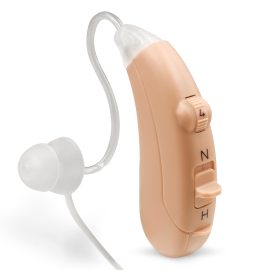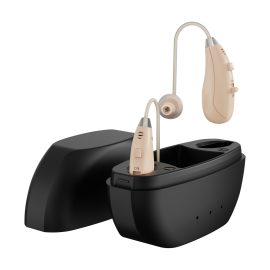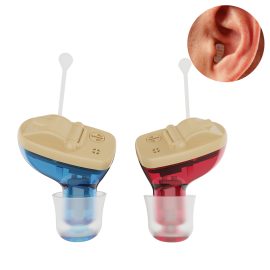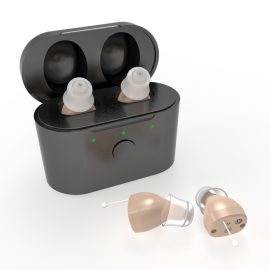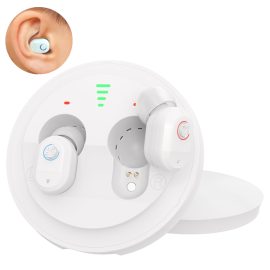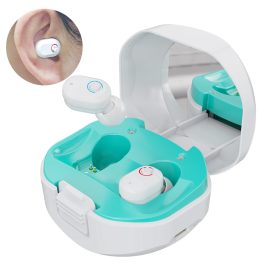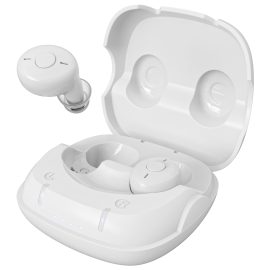Analog Hearing Aids
An analog hearing aid is a traditional type of hearing device that uses analog technology to process and amplify sound. Unlike digital hearing aids, which convert sound into digital signals for processing, analog hearing aids amplify the continuous analog signal of the incoming sound wave. While digital hearing aids are more prevalent today, analog hearing aids were commonly used in the past. The advantages of analog hearing aids include:
1. Simplicity: Analog hearing aids are simpler in design compared to digital counterparts. They amplify sound without complex digital processing.
2. Cost-Effectiveness: Analog hearing aids are generally less expensive than digital models. This can make them a more affordable option, especially for individuals with budget constraints.
3. Durability: Analog hearing aids are often considered more durable and less prone to malfunctions because they have fewer electronic components.
4. Long Battery Life: Analog hearing aids typically have longer battery life compared to digital counterparts. This is because they consume less power without the complex processing required in digital devices.
5. Ease of Use: Analog hearing aids are straightforward to use. They often have simple controls for adjusting volume and may lack the advanced features found in digital hearing aids, making them easier for some users to operate.
6. Instant Adjustment: Analog hearing aids provide instant and continuous amplification without the processing delay associated with digital devices.
7. Compatibility: Analog hearing aids may be suitable for individuals who do not require advanced features and prefer a more straightforward and traditional amplification solution.
It’s important to note that while analog hearing aids have these advantages, digital technology has significantly advanced, and digital hearing aids now offer a range of features that contribute to improved sound quality, customization, and adaptability to different listening environments. The choice between analog and digital hearing aids depends on individual preferences, hearing needs, and the specific features desired by the user. In modern times, digital hearing aids are more commonly recommended due to their enhanced capabilities and flexibility in meeting individual hearing requirements.

